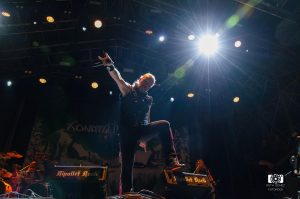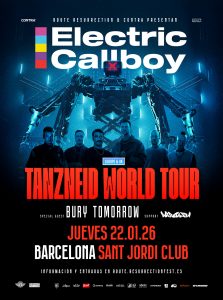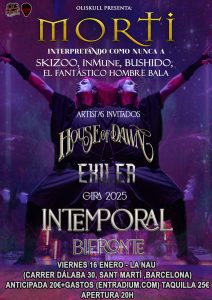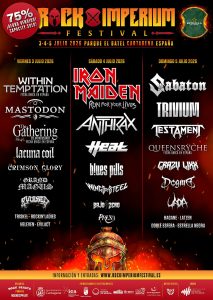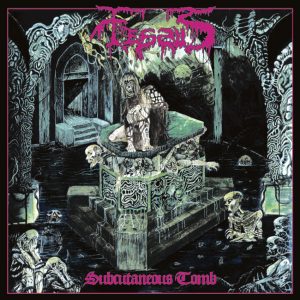SCALD: Myths, Legacy, and the Timeless Power of Doom

In this interview with doom metal band Scald, we explore much more than just their music. Beyond discussing their highly anticipated return with Ancient Doom Metal, the band delves into profound themes like ancient mythology, personal legacy, and the ways in which their music bridges the gap between timeless traditions and the modern world. They speak about the influence of northern landscapes, the symbolic and personal truths in mythology, and the ever-present spirit of their late vocalist, Agyl. This conversation reveals how Scald continues to channel forces greater than themselves through their music, offering listeners a journey back in time while confronting the complexities of the present.
– Hi, first off thanks for taking your time. How’s everything doing in the lair of Scald?
Karry: Greetings! There is a slight lull in the Sсald camp after the release of the album, but judging by the mood, this is the calm before the storm : )
Ottar: Hello! Scald wholeheartedly welcomes our listeners and Scald is back and ready for action!
-After such a long hiatus, returning with Ancient Doom Metal must feel like a monumental step. How did reconnecting with your music after so many years shape your view of the band’s legacy and what you want to accomplish moving forward?
Karry: We would like to continue the glorious traditions of the first album, to keep the signature style that makes the band so easily recognized. Our other goal, I’d say, is to to gain the attention of new listeners, without rushing into “adventures” in the form of musical experiments.
Ottar: We are grateful and very happy that over the course of so many years since the release of the first album, the army of our fans and listeners has grown from literally one hundred to several hundred thousand devoted admirers of our work. Thanks to our fans’ support back in 2019 the spark was born that lit the fire in which those sagas were born – the music that lived inside us managed to break free and form into the album «Ancient Doom Metal». We would like everything that we put into this album, – the sound, the lyrics and the spirit, – to be clear and close to everyone who hears it.
-There’s a strong sense of mythology and ancient lore in Ancient Doom Metal. Do you see these myths as purely symbolic, or do they hold a deeper, perhaps personal, truth for you? How do they inform your worldview?
Karry: The worldview is formed on the basis of empirical and a priori knowledge. And this knowledge is to a large extent influenced by ancient myths, which, in my opinion, have a strong share of symbolism. As for personal truth, partly – yes, this is the case.
Ottar: Myths help us understand how our ancestors lived in those distant epoch; they tell us about their beliefs and customs. These tales immerse us in a world where the gods rule, where people live in interaction and harmony with nature, which helps them to gain the wisdom of existence. The theme of mythological legends is very broad: it contains gods and spirits, nature comes to life there, blossoms and develops, it brings inspiration and joy of life to the people, but at the same time it can be cruel and merciless. In mythological reality nature can even destroy the one who considers himself one with it… it can destroy a person…
-Felipe’s vocals have brought a new dynamic to Scald. How did the band adapt its creative process to his presence? Was there a balance to strike between maintaining the spirit of Agyl and allowing Felipe to bring something fresh?
Karry: One could feel from the very beginning how involved and dedicated Felipe was. No adaptation as was needed, since he is a long-time fan of the bands’s work. Of course he’s not trying to copy Agyl’s vocals, but Agyl’s influence is there. At the same time, Felipe brings something new of his own, but it always feels quite natural. And most importantly, he is full of creative fire.
Ottar: We were amazed and at the same time happy that Felipe’s vocals and himself completely merged with the group and became part of it. We first heard him singing when we found out about a cover version of “Night Sky” recorded by his band Procession. And it was astonishing how precisely he managed to capture the true spirit of Scald and Agyl’s manner of singing. And the success at the «Hammer of Doom» the question of a new album was practically resolved… We began to prepare new material because we were sure we found just the right successor for Agyl. New creative vistas were opening to us! And sure, Agyl remains in our hearts and he’ll be with us forever – he is unique! But Felipe was able to take us back to that time and help us move forward. And this way our present, with Felipe at the microphone, is connected to our past, so the story of Scald continues.
-Your music invokes vast, cold landscapes and ancient stories, yet you’re performing it in the modern world. Do you ever feel like you’re channeling something timeless when you create, something beyond just the music?
Karry: I really hope that our music has the power to transport the listener through time. And it allows you to forget, at least for a while, about the crazy modern world. The most important thing is music and it is always timeless…
Ottar: When creating and playing our music, we never thought about time… We acted and created with our soul, with the spirit that lives in us. Perhaps we are distant relatives of the ancient Vikings, who went on their last campaigns to achieve their dreams and their goals, and just like them, we are following a similar path…
-Given the tragic death of Agyl shortly after your first album’s release, did you ever feel a sense of responsibility or burden to honor his legacy with Ancient Doom Metal? How did his spirit, if at all, guide you during the creation of the album?
Karry: Sure, we could feel that responsibility, but it was never a burden – more like another reason to work hard and create a true masterpiece, worthy of Agyl. And, yes, partly this album was created under his spiritual influence.
Ottar: Sure, Agyl will always mean the world to us. He is long gone, he left us to join other heroes in Valhalla, but we can still feel his presence somehow. He was a great man who dedicated himself to music completely.
– Scald’s music often feels like a ritual or journey. When performing, do you feel the same sense of connection to ancient forces or something larger than yourselves?
Karry: Performing on stage in front of listeners is a very memorable event, for us also because it doesn’t happen so often) The way our audience reacts affects us a great deal during performance. In moments like this it feels like the band and the fans become one, connected by the muisc. Connection to something larger than ourselves? It our fans who are something larger than us!
Ottar: The whole uniqueness of the moment is that when creating material and going on stage with it, we sincerely experience and give all the feelings and all the energy that we pass through ourselves to those people who came to hear us.
-The themes in Ancient Doom Metal often reference northern mythology and ancient cultures. How do you think this intersection of doom metal and mythology speaks to listeners today, especially in a world that’s increasingly disconnected from its historical roots?
Karry: This is a reminder of those glorious times that will never be forgotten and will always be sung by new scalds, regardless of changes in the world.
Ottar: We must not forget history – this is a truth that everyone should remember!
-Your album has a strong focus on the North and cold mysticism. How does the physical environment of Yaroslavl, with its unique geography and history, influence your sound? Is there something about the Russian landscape that inherently lends itself to doom metal?
Karry: Absolutely – most of all the might Volga river, as well as any frosty winter landscapes, with lots of snow. All this affects the imagination and ultimately creativity.
Ottar: The Russian landscape is a unique combination of diverse nature – from plains, fields, forests and rivers to seas and mountain peaks. It is this diversity of nature that helps us feel its strength and beauty and inspires creativity.
-Doom metal often explores slow, meditative soundscapes. Does this slowness also reflect how you view life, culture, or even time? Is doom metal for you a way of resisting the speed and chaos of modern existence?
Karry: Not at all, we are not that slow in real life, haha. And time flies really quickly, too. Nowadays it is simply impossible to be slow, but with fast music it is difficult to convey the themes that are present in our work.
Ottar: We don’t want to resist anything! We just create what we all like – our music. And it happens that doom metal is what we all love, even though each of us listens to other styles as well.
-You’ve spoken about incorporating folk elements in your music, though not overtly. What is it about folk music, particularly northern and Slavic traditions, that draws you in, and how do you feel it complements the heaviness of doom metal?
Karry: Folk music brings its own “zest” to the songs, making them more interesting and varied, adding beautiful moves to each song that emphasize the theme of the composition. Combined with heavy riffs, this gives a good and memorable sound.
Ottar: Velingor and I used to play in a folk metal band and this brought a certain color to the sound of «ADM», but this did not have any global influence on the final result of our new album.
-In metal, there’s always a tension between mythology and reality. How do you balance the desire to tell fantastical stories with the very real experiences of life, death, and tragedy that often inspire them?
Karry: Experiences in life can be difficult, as well as the flow of information about deaths and tragedies that pours on our heads from the media. All this don’t go well with creativity, we try to abstract ourselves from these experiences and create music in spite of what’s going on in real life.
-You’ve achieved a near-mythical status in the underground doom scene. How do you stay grounded and true to yourselves in an era where music, especially metal, can so easily become commodified and consumed without depth?
Karry: We do what we like and this helps us not to change our ideals. Depth is present in any music, but especially in metal, and we need to convey this to people.
-As a band that bridges the gap between ancient traditions and modern (or current) metal, how do you personally define success? Is it in album sales, fan reception, or something more intangible like the impact of your music on people’s lives?
Karry: I would say all listed above matters, but above all – the impact on people’s lives. Music should make life easier somehow, and worth living.
Ottar: You know – in the 90s we considered it a success when a couple of dozen listeners came to our concerts who really liked our music. After several re-releases of the first album, we realized that our creativity had gone far enough beyond the physical borders of our country. The geography of our presence has expanded to a global scale, as evidenced by reviews, letters and sincere wishes for further success from fans and admirers of the group from all over the world. This may be a more mundane definition of success on our part, but this is how we feel it.
-Your lyrics often explore the intersection of ancient Scandinavian, Slavic, and Finno-Ugric myths. Do you see these diverse mythologies as interconnected? How does blending them enhance the narrative and emotional depth of your music?
Karry: When it comes to the lyrics, Velingor can give you the most detailed answer, but he is now in a state of deep immersion in a trance – seids and volvas are holding a ritual over him (only joking, of course, haha). These mythologies are interconnected for sure – one can find the same archetypes there. Besides, here in our homeland Slavs, Vikings and Finno-Ugric tribes occupied the same territories and were in constant contact with each other, exchanging their beliefs and ideas. So it’s not us who blends these ancient mythologies – it already happened a long time ago.
-With Ancient Doom Metal, you’ve built on your original sound while evolving as musicians. Do you think there’s a tension between innovation and tradition in your music? How do you navigate staying true to your roots while also allowing yourselves to grow artistically?
Karry: We must try to combine innovation and tradition in music, but in such a way that it does not have a negative impact on the final result. That’s right, you have to be true to your roots, but innovation is what allows you to progress.
-That’s all from our side. Thanks again for answering to these questions. If you’d like to add some final words; its your turn.
Karry: Thank you for your questions and for your attention to our band!
Ottar: Our gratitude goes to our fans all over the world – thank you for your endless support, that made Scald’s return possible!



